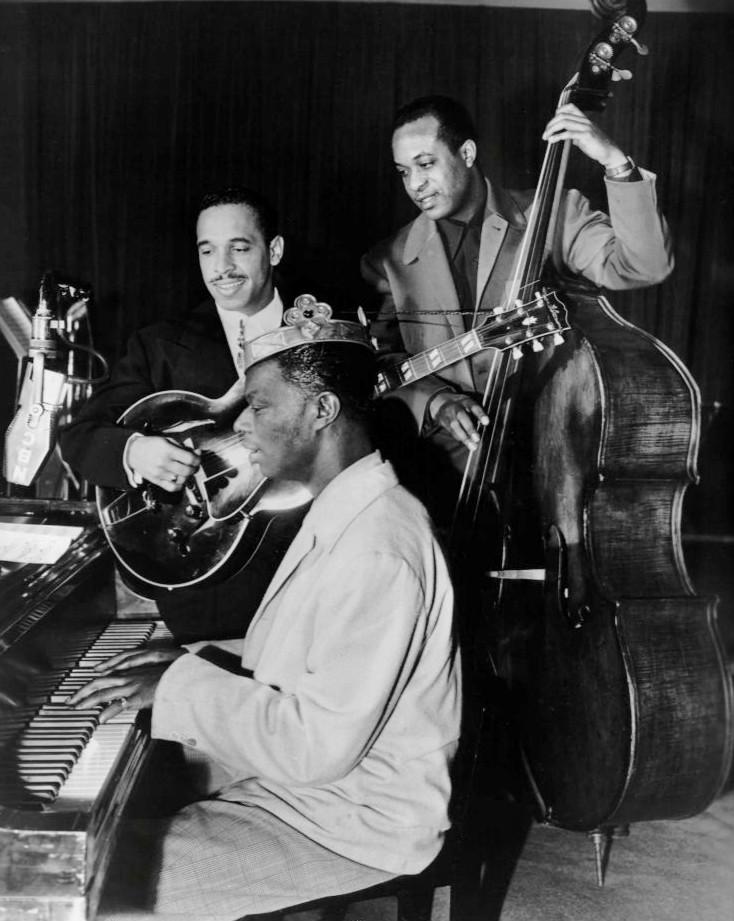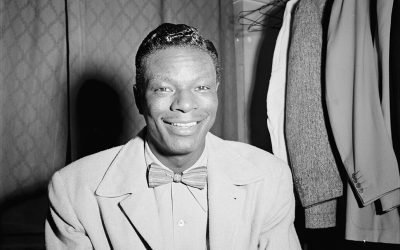Nat King Cole, born Nathaniel Adams Coles on 17 March 1919, is an enduring figure in American music history. Renowned for his smooth baritone voice and impeccable piano playing, Cole broke racial barriers and became one of the first African American artists to achieve crossover success. His legacy continues to influence musicians and entertainers across the world, making him a timeless figure in the entertainment industry.
Early life and musical beginnings
Nat King Cole was born in Montgomery, Alabama, but his family moved to Chicago when he was a child. Growing up in Chicago’s vibrant musical atmosphere during the 1920s and 1930s, Cole was exposed to a rich tapestry of jazz, blues, and gospel music from an early age. His mother, a church organist, introduced him to music, and by the age of four, he was already showing remarkable musical talent.

Cole’s formal education in music began with classical piano, but his heart was in jazz and popular music. By his teenage years, he was a proficient pianist, playing in jazz clubs around Chicago. His early career saw him touring with a black musical revue and playing in various jazz ensembles. During this time, he adopted the stage name “Nat King Cole,” a moniker that would become synonymous with jazz and pop music excellence.
In 1937, Cole formed the King Cole Trio, a groundbreaking ensemble that blended jazz with pop. The trio’s format—piano, guitar, and bass—was innovative for its time and became highly influential in developing small group jazz. The King Cole Trio’s success on the club circuit led to recording contracts and national radio exposure, setting the stage for Cole’s ascent to stardom.
These early years were crucial in shaping Nat King Cole’s musical style and career trajectory. His smooth transition from jazz pianist to pop vocalist was facilitated by his deep musical foundation and ability to connect with audiences across racial and genre lines. This period laid the groundwork for a career that would see him become one of the most beloved entertainers of the 20th century.
Rise to fame
The King Cole Trio’s blend of jazz and pop, characterised by Nat King Cole’s silky voice and masterful piano playing, began to gain widespread attention in the early 1940s. Their first major hit, “Straighten Up and Fly Right,” released in 1943, was a jazzy pop song with a catchy rhythm and clever lyrics, which resonated with both black and white audiences. This success marked a turning point in Cole’s career as he transitioned from a respected jazz musician to a national pop star.
Cole’s appeal was not limited to his musical talent; his charismatic stage presence and smooth vocals made him a favourite among audiences. As his popularity grew, so did his appearances on radio and television, making him one of the first African American artists to achieve significant media exposure. Despite facing racism and segregation, Cole’s music broke through racial barriers, paving the way for future generations of black entertainers.
In 1946, Nat King Cole became the first African American to host his own radio show, further establishing his status as a leading figure in American music. This period also saw him expanding his repertoire, including more pop-oriented songs, which broadened his appeal. Hits like “Mona Lisa” and “Unforgettable” showcased his versatility as a musician and cemented his place as a pop icon.
Musical style and innovations
Nat King Cole’s musical style was a seamless blend of jazz, pop, rhythm, and blues, setting him apart from his contemporaries. His ability to cross genre boundaries was revolutionary at the time and contributed significantly to the development of American music. Cole’s smooth baritone voice was his most distinctive feature, capable of conveying a wide range of emotions, from joy to heartbreak, with subtlety and depth.
As a pianist, Cole was equally influential. His playing combined the sophistication of jazz with the accessibility of pop, making it appealing to a broad audience. His approach to the piano was both innovative and inspirational, influencing not only jazz pianists but also musicians in other genres.
Moreover, Nat King Cole’s arrangements and compositions contributed to his innovative musical style. He had a knack for selecting and arranging songs that suited his voice perfectly, often adding a unique twist that made the songs his own. His work with the King Cole Trio, in particular, demonstrated his innovative approach to music, combining the intimacy of a jazz combo with the broader appeal of pop music.
Nat King Cole’s musical innovations and stylistic versatility made him a legend in his own time and left a lasting impact on the music industry. His contributions helped to shape the sound of mid-20th-century American music, bridging the gap between jazz and pop and opening the door for future artists to explore and blend genres.
Television and film career
Nat King Cole’s foray into television and film was marked by the same pioneering spirit he brought to his music career. In 1956, he became the first African American to host a national television variety show, “The Nat King Cole Show.” Despite the lack of national sponsorship, which led to its cancellation after just one year, the show was a groundbreaking achievement. It showcased Cole’s talents beyond music and broke racial barriers in the entertainment industry.
His television career, although brief, was significant for its representation of African Americans in a new light, paving the way for future generations of black entertainers in television. Cole’s charm, wit, and talent made the show a critical success, and he continued appearing on other television programs throughout his career.
In film, Cole acted in several movies, including the W.C. Handy biopic “St. Louis Blues” (1958), where he played the legendary blues composer. His role in this film and appearances in other movies and documentaries highlighted his versatility as an entertainer and his ability to transcend musical boundaries.
Civil rights activism
Beyond his entertainment career, Nat King Cole was an important figure in the civil rights movement, using his fame and influence to advocate for equality and justice. While he faced significant racism throughout his life, including being attacked on stage in 1956 by members of the white supremacist group the White Citizens’ Council, Cole remained a dignified and compelling voice against segregation and discrimination.
Cole’s participation in civil rights was complex; he was criticised by some for not being more outspoken early in his career. However, he became more actively involved in the 1950s and 1960s, performing at benefit concerts for the NAACP and other civil rights organisations, and participating in the historic March on Washington in 1963.
Despite the challenges he faced, Cole’s contributions to the civil rights movement were significant. His success as a black entertainer in a predominantly white industry challenged racial stereotypes and opened doors for future African American artists. His advocacy and philanthropy, though sometimes understated, played a part in the broader struggle for civil rights and equality.
Legacy and posthumous recognition
Nat King Cole’s legacy is a testament to his extraordinary talent and pioneering role in American music and culture. Posthumously recognised with numerous awards and honours, including the Grammy Lifetime Achievement Award, his music continues to inspire and enchant listeners around the world. His recordings remain timeless, and his influence on jazz, pop, and R&B is unmistakable.
Cole’s impact goes beyond music; his contributions to breaking racial barriers in entertainment and his activism in the civil rights movement have cemented his status as a cultural icon. His life and work are a reminder of the power of art to inspire change and bring people together across divides.
Nat King Cole’s journey from a talented young musician to a global icon is a story of extraordinary talent, resilience, and trailblazing achievements.





